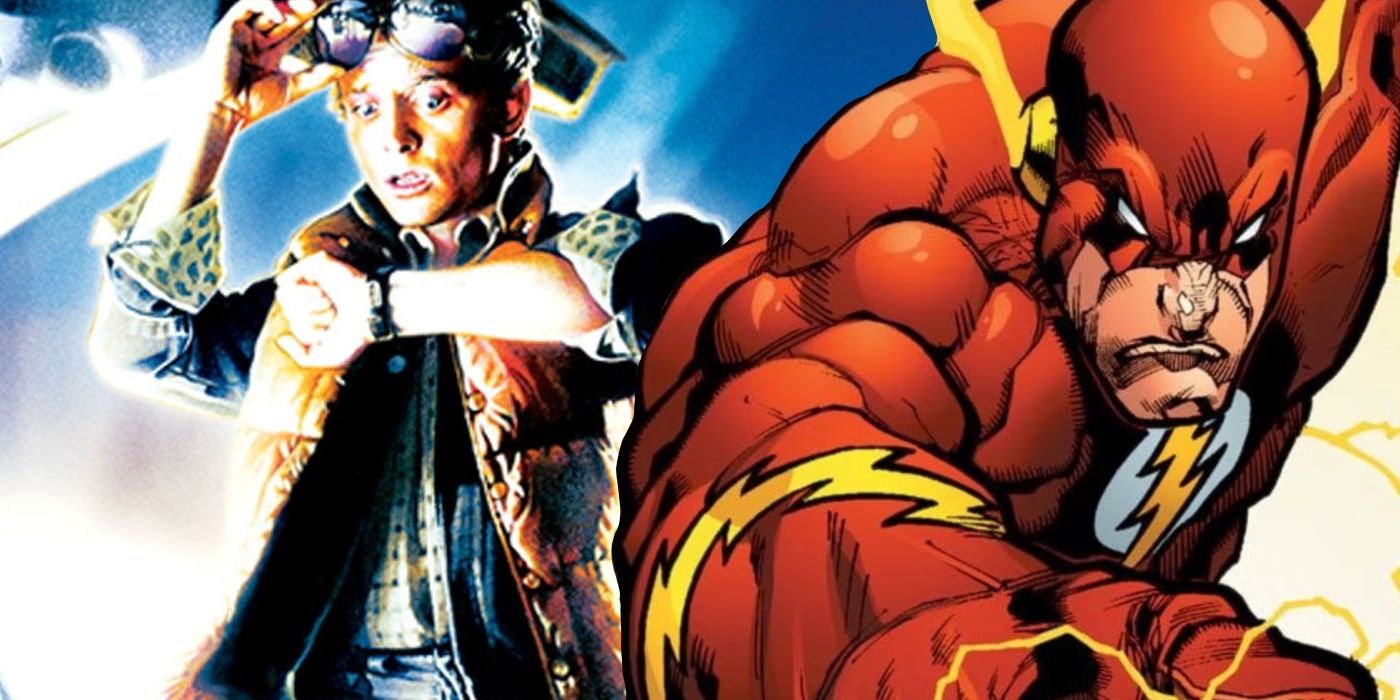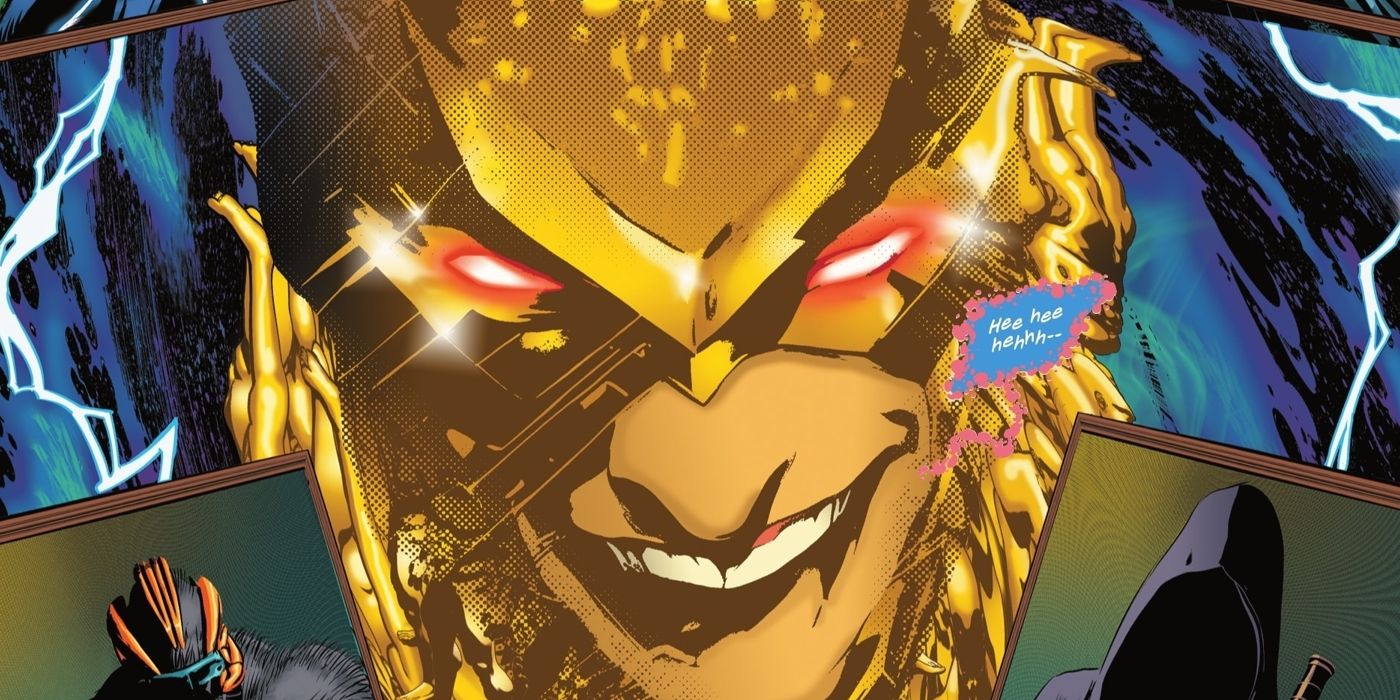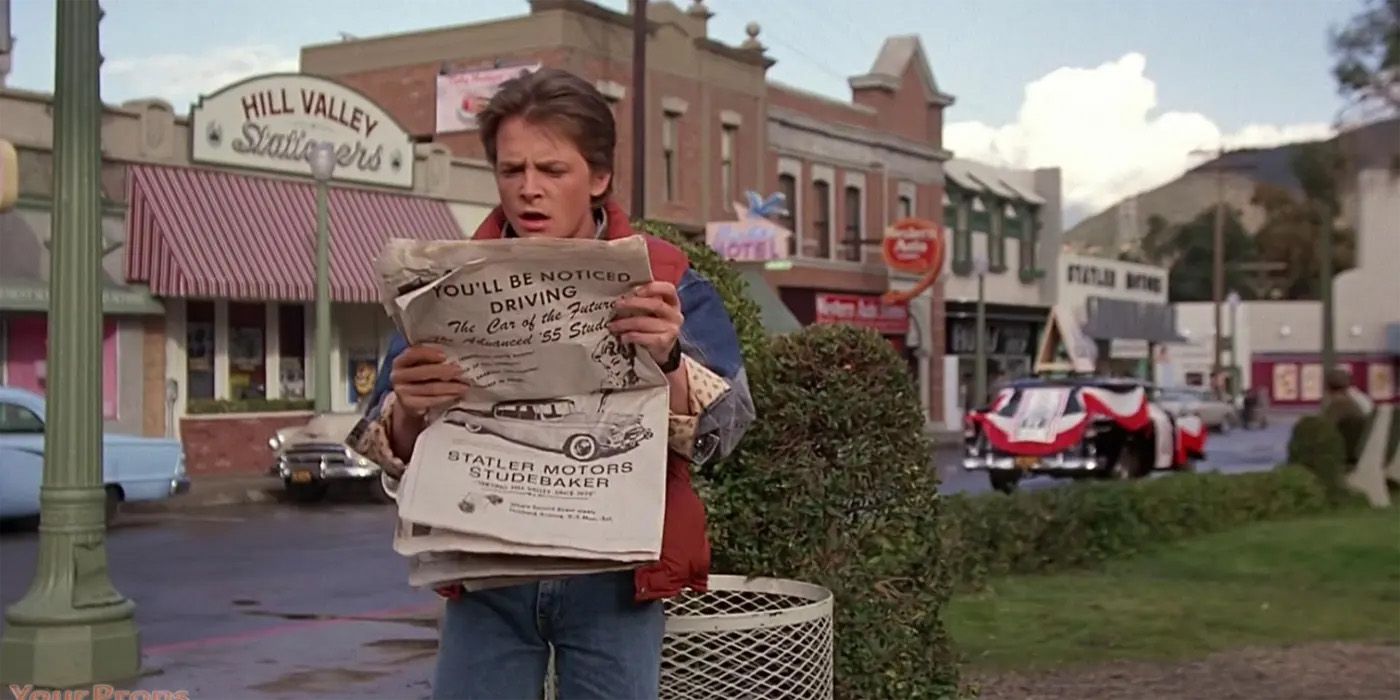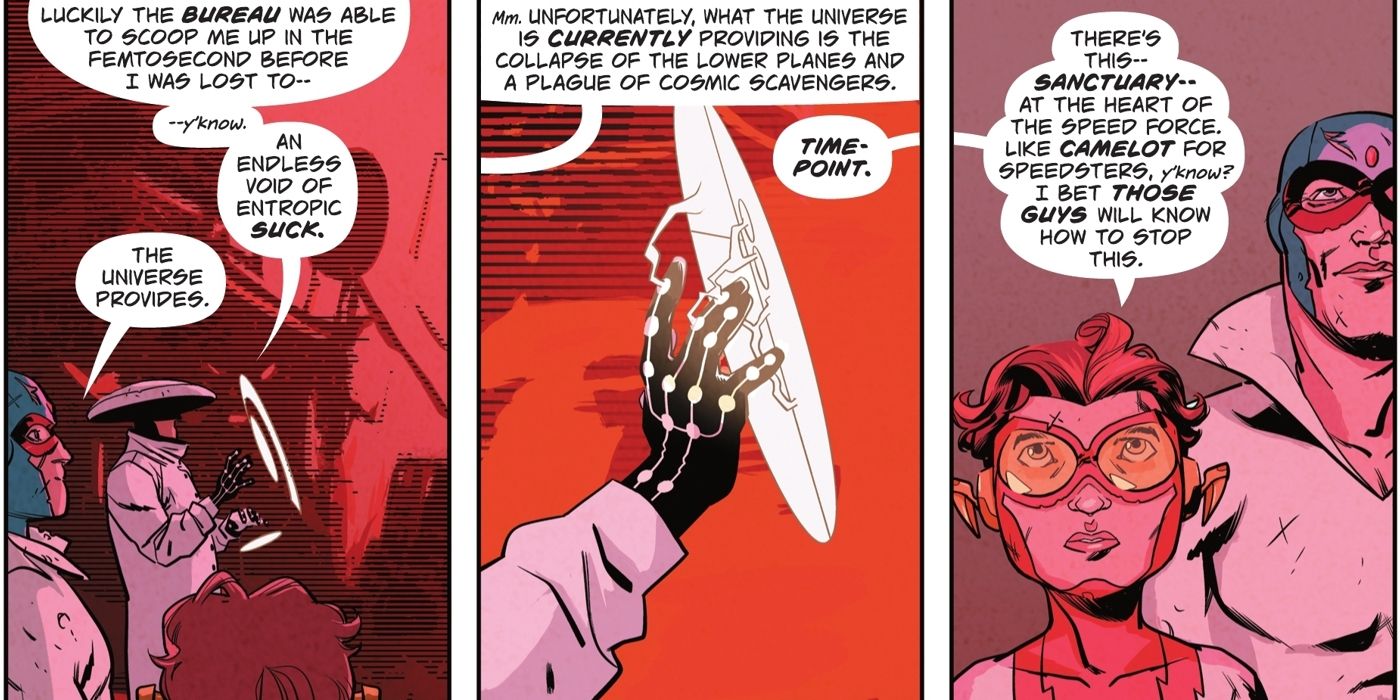Summary
- The Flash is exploring dangerous parts of the DC Universe with the help of Inspector Pilgrim to solve cosmic mysteries.
- The DC Universe faces chaos as timelines are affected by extra-dimensional threats, leading to new allies and strange events.
- The Flash Family debates the impact of time travel on the timeline, using real-world principles to craft a compelling mystery.
Warning! Spoilers ahead for The Flash #7!The DC Universe is coming apart at the seams, but its avoiding one of the most infamous cliches in time travel stories. For the last several months, the Flash has been exploring some of the wildest and most dangerous parts of the DC Universe.
Aiding the Flash’s mission is the shadowy figure Inspector Pilgrim. He’s been assisting the world’s brightest minds as cosmic phenomenons continue to pile up and have a drastic effect on the DCU. And while these oddities are affecting the timeline, DC Comics has a unique spin on one of the biggest cliches that pops up in time travel-based stories.
How the DC Universe Has Gotten Off the Rails
The DC Universe has always been a place filled with magic and unexplainable phenomena like the Speed Force. But things got a lot more weird when the Flash crashed through an atomic mirror during a battle with an upgraded Mirror Master. Wally West suddenly developed a new power he came to call ‘side-stepping’. This power allowed the Fastest Man Alive to phase through different layers of reality and explore creepy new dimensions that were hidden in plain sight. Unfortunately, this discovery kicked off a series of strange events in the DC Universe.
Gorilla Grodd came to Central City with an army of soldiers in a series of attacks armed with powerful new technology. One of his experiments gained the attention of an Uncoiled, a terrifying killer monster from one of the hidden dimensions the Flash discovered. Thankfully, the Flash was saved by the Stillness, a group of cosmic researchers who were investigating yet another strange phenomenon, the Arc Angles. As the odd events began to stack up, a new ally presented himself to the Flash Family: Inspector Pilgrim, Science Detective.
Inspector Pilgrim was working with Mister Terrific to analyze the new cosmic disturbances that were racking up at an alarming rate. Unfortunately, things spiraled out of control, leading to the DC Universe being inundated with creatures from the various extra-dimensional realms. Wally teamed up with his former mentor Barry Allen, and the two Flashes raced around the globe to get things under control. What the two heroes didn’t know was that much of the chaos was actually planned by a powerful and unknown threat who planned to unleash a weapon known as the Crown of Thawnes onto the DC Universe.
The Flash Family Ends the Debate on Time Travel
In The Flash #7 by Si Spurrier, Ramón Pérez, Sofie Dodgson, and Hassan Otsmane-Elhaou, Impulse and Max Mercury are trapped in the hidden layer Max has come to call ‘Ickto’. The two heroes are under attack from a swarm of Uncoiled and unfortunately for the heroes, this place has impaired their speedster abilities. Thankfully, the two are rescued by the Linear Bureau’s enforcers, the Linear Men, who defeat the Uncoiled and take the Flash Family members to an extra-dimensional void to recuperate from their experience.
Pilgrim agrees that Bart’s assessment is correct, but he also points out that perspective is key
The duo meets Inspector Pilgrim, who brings Max and Bart up to speed on what it is that the Linear Bureau does. Pilgrim tells the speedsters that the Bureau is an “atemporal organization devoted to the smooth running of a stochastic universe”. But Pilgrim simplifies it by describing himself and his comrades as ‘time cops’. Pilgrim informs Max and Impulse that something has changed in the DC Universe’s timeline. Reality is falling apart at the seams and Pilgrim sums it up in the clearest way he can: Someone has murdered the future.
As Max struggles to comprehend the weight of Pilgrim’s assessment, Impulse calls the entire thing stupid. Impulse calls it ‘bad sci-fi logic’, saying that if something changes the timeline, it does suddenly change or have a domino effect; the affected timeline will have always just been that way. Pilgrim agrees that Bart’s assessment is correct, but he also points out that perspective is key, noting that at quantum levels, outcomes are contingent upon observations, meaning that shifts to the timeline can be interpreted subjectively.
The DC Universe Avoids Repeating Back to the Future’s Cliche
The concept of time travel is theoretical, but that hasn’t stopped numerous stories from experimenting with the idea. Back to the Future infamously popularized the idea of a malleable timeline, where changes could be witnessed and corrected. For Marty McFly, he could see the changes to his timeline through a photograph that saw his siblings disappear one by one. Avengers: Endgame went in a much different direction saying no changes could be made to the original timeline and that time travel only resulted in creating separate realities.
Inspector Pilgrim raises a solid point that in quantum mechanics, the outcome is different depending on how things are observed
Because of the fast and loose nature of time travel, movies and franchises have portrayed the notion wildly different. The film About Time dove into the cause-and-effect nature of changes to the past, but ultimately presented time as being very fluid. Interstellar dove into the theories of time travel centered around the idea of time dilation. And the excellent Bill and Ted’s Excellent Adventure showcased a world where time travel not only existed but changes to the timeline were already a solidified part of their history.
While all theoretical, Impulse is correct that time travel would behave a bit more like Bill and Ted than Back to the Future. But Inspector Pilgrim raises a solid point that in quantum mechanics, the outcome is different depending on how things are observed. The Linear Bureau would be able to see the DC Univere’s history from a different perspective and recognize the changes done to the timeline. Changes made via time travel still permanently affect the timeline, but allow the story to do what it needs for the sake of the mystery of who killed the future.
DC Comics is Putting a New Stamp on Time Travel Stories
Since there are no real rules to it, time travel can be a difficult topic to write about. But by touching on a few real-world principles, DC Comics has been able to craft a compelling time-travel mystery. While humanity may never master traversing through time, the idea has created endless stories with many postulations about how it would work. And while some stories may go for a more cliched approach, the DC Universe is avoiding that with its unique take on how time travel works.
The Flash #7 is available now from DC Comics.
|
The Flash #7 (2024) |
|
|---|---|
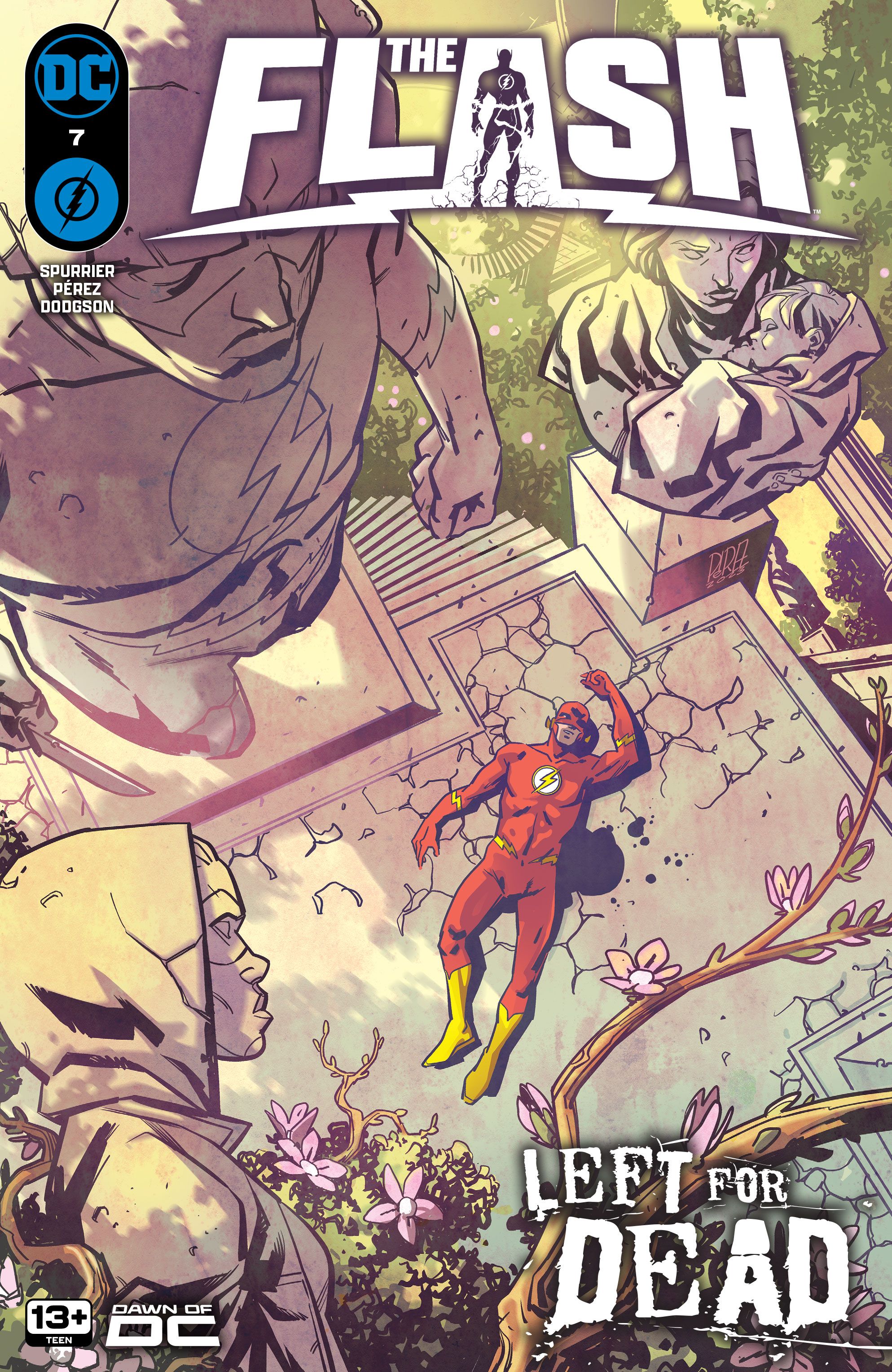 |
|

